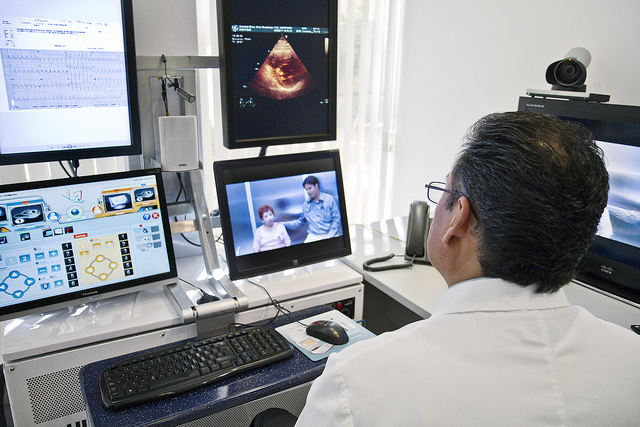Telemedicine sucks as much as in-person care

Telemedicine proponents have argued for years that virtual care is at least as effective as in-person care delivered in a traditional clinical setting. Based on new research, they may be more right than they had thought.
Neil Versel, Med City News April 5, 2016
A study published this week in JAMA Internal Medicine found “significant variation” in adherence to medical guidelines for urgent care provided by commercial telemedicine companies. In other words, remote physicians vary from guidelines just like other doctors do.
The researchers, led by Dr. Adam Schoenfeld of the University of California, San Francisco, wrote:
In particular, the rate of antibiotic prescribing in commercial virtual visits that we observed is similar to the rate seen nationally in traditional (in-person) settings. For instance, a prior study found that antibiotics were prescribed to approximately 60 percent of patients seen at primary care practices and emergency departments with sore throat nationally, whereas others have documented 80 percent prescribing to patients with upper respiratory tract infections.
Perhaps the most alarming statistic from the study was that virtual physicians missed 23.5 percent of diagnoses in the 599 telemedicine cases Schoenfeld’s team examined. Some telemedicine providers got the diagnosis right less than two-thirds of the time, though others were correct with more than 90 percent of the patients they examined.
Adherence to guidelines varied widely not only by provider, but also by condition, the study said. In other words, telemedicine sucks as much as traditional care.
To this point, the American Telemedicine Association tweeted this on Tuesday morning:
Majority of #Healthcare Professionals Believe #Telemedicine Delivers Similar Outcomes to In-Person Care https://t.co/uiQgwi7g7I
— American Telemed (@AmericanTelemed) 5 April 2016
That tweet links to a March 24 story in Healthcare Informatics about a survey from machine-to-machine communications vendor Aeris. In that survey, a majority of healthcare professionals expressed a belief that telemedicine produces similar outcomes as in-person care.
Of course, a belief is backed by nothing more than an educated guess. And despite the presence of guidelines and clinical decision support, medicine somehow remains a field rife with educated guesses.
Source Med City News
Also see
Why Is Telemedicine Suddenly Hot? in Forbes
Majority of Healthcare Professionals Believe Telemedicine Delivers Similar Outcomes to In-Person Care in Healthcare Informatics
OPENPediatrics offers opportunity to help physicians, and sick children, worldwide in Stanford Medicine
